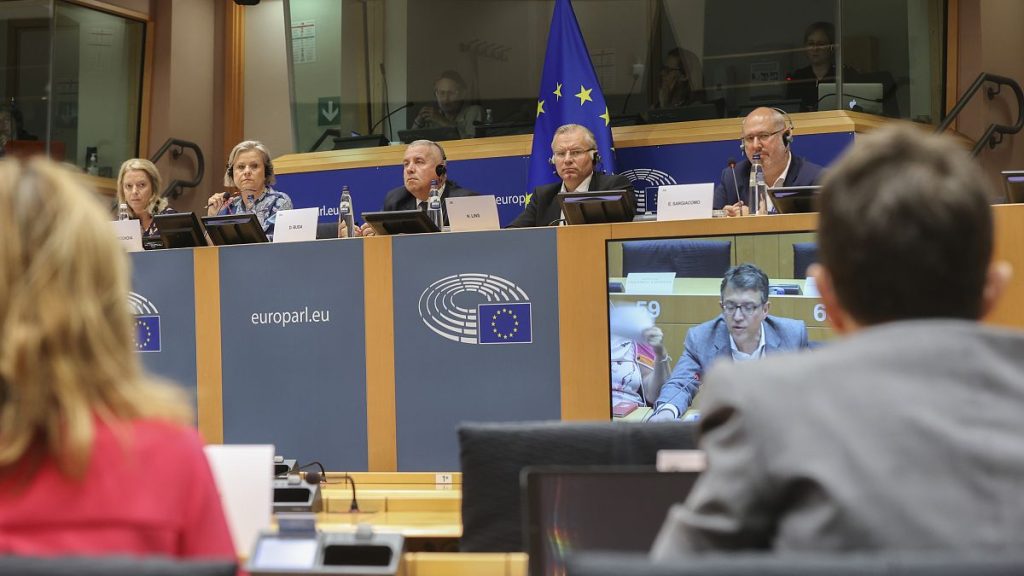Summarize this content to 2000 words in 6 paragraphs
Right-wing groups have a significant presence in the parliamentary committee dealing with agriculture and attempted to claim nearly all key positions during the committee’s constitutive meeting.
The European Parliament’s Agriculture Committee (AGRI) opened this week on what promises to be its most right-leaning legislative term to date.The new committee composition is predominantly right-leaning, with the centre-right European People’s Party (EPP), conservatives (ECR), far-right Patriots for Europe (PfE) and ultra-far-right Europe of Sovereign Nations (ESN) holding 25 of its 48 seats.The remaining 21 seats are occupied by socialists, liberals, greens, and leftists. Among the two non-attached members, Spain’s Luis “Alvise” Pérez leans towards right-wing populism, while Katarína Roth Neveďalová from Slovakia’s PM Fico’s party veers left.Agriculture is anticipated to be a key test bed for the pro-EU majority that supported von der Leyen’s re-appointment. The forthcoming EU executive is expected to present a vision for agriculture and food within its first 100 days, which will likely spark lively discussions in an AGRI committee.In a display of strength, right-wing parties aimed to secure most key committee positions in the constitutive meeting, claiming the chairwomanship and three of four vice presidencies, leaving only one post to the socialists.Conservative Veronika Vrecionová, a Czech lawmaker from PM Petr Fiala’s Civic Democratic party, was elected chair, becoming the first woman to chair AGRI in the parliament’s history.The EPP sought to secure three vice presidencies and succeeded in obtaining two before a vote postponement on the third, due to procedural concerns about gender balance raised by the socialists as all elected vice-presidents were male.A right-wing committee?Agricultural policy is expected to lean right in this mandate, with rumours suggesting von der Leyen may assign this portfolio in her EU executive to an EPP member, which campaigned by proclaiming itself as the European farmers’ party ahead of the EU elections.A rightward shift was discernible towards the close of the last AGRI committee’s mandate when a Commission proposal to water down the environmental ambition in the EU’s farming subsidies programme – strongly backed by the EPP – was approved in the final plenary session.Some lawmakers are concerned about the committee shifting further to the right. “Even if all of [the progressive] parties came on side for one of our votes, we’re still in a minority,” noted Irish MEP Luke ‘Ming’ Flanagan, agriculture coordinator for the Left.“It’s going to be a challenging five years,” he told Euronews, concerned that the dominant right-wing would attempt to erode the Green Deal policies. By contrast, Herbert Dorfmann, the EPP’s agriculture coordinator, downplayed fears of a major political shift, emphasising continued cooperation between pro-European forces, including liberals and socialists, and good relations between the centrists and the ECR.Greens Austrian MEP Thomas Waitz questioned whether new ECR chairwoman Vrecionová would support small and medium farms, by comparison with her predecessor, EPP lawmaker Norbert Lins, who was perceived to favour the agriculture and food industry.
Keep Reading
Subscribe to Updates
Get the latest creative news from FooBar about art, design and business.
© 2025 Globe Timeline. All Rights Reserved.













